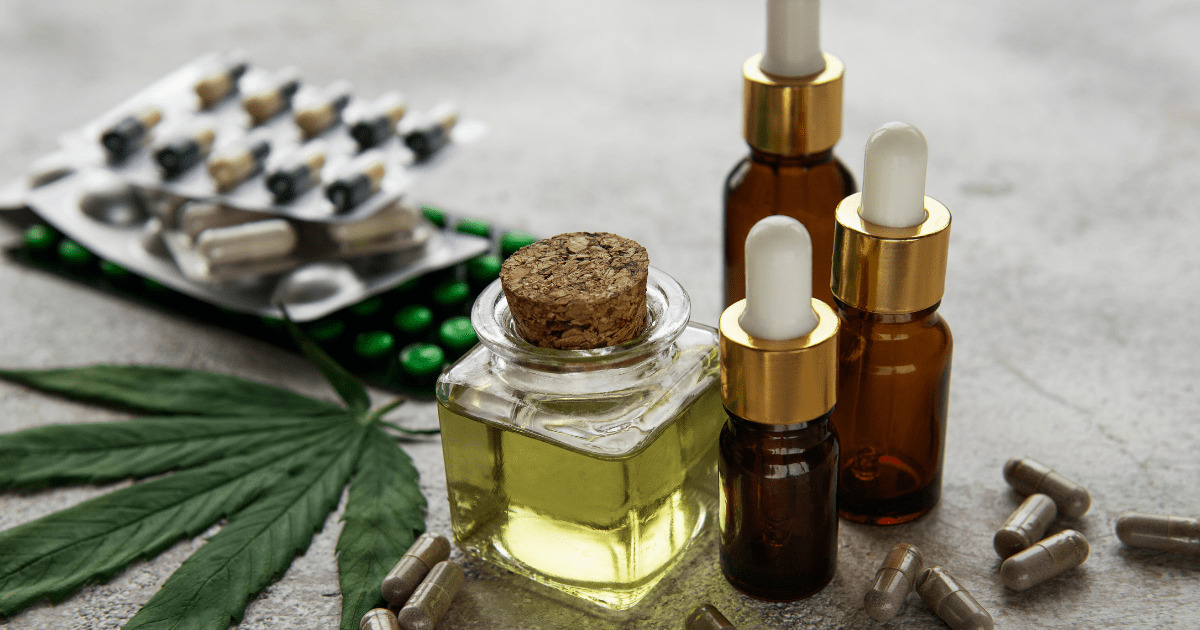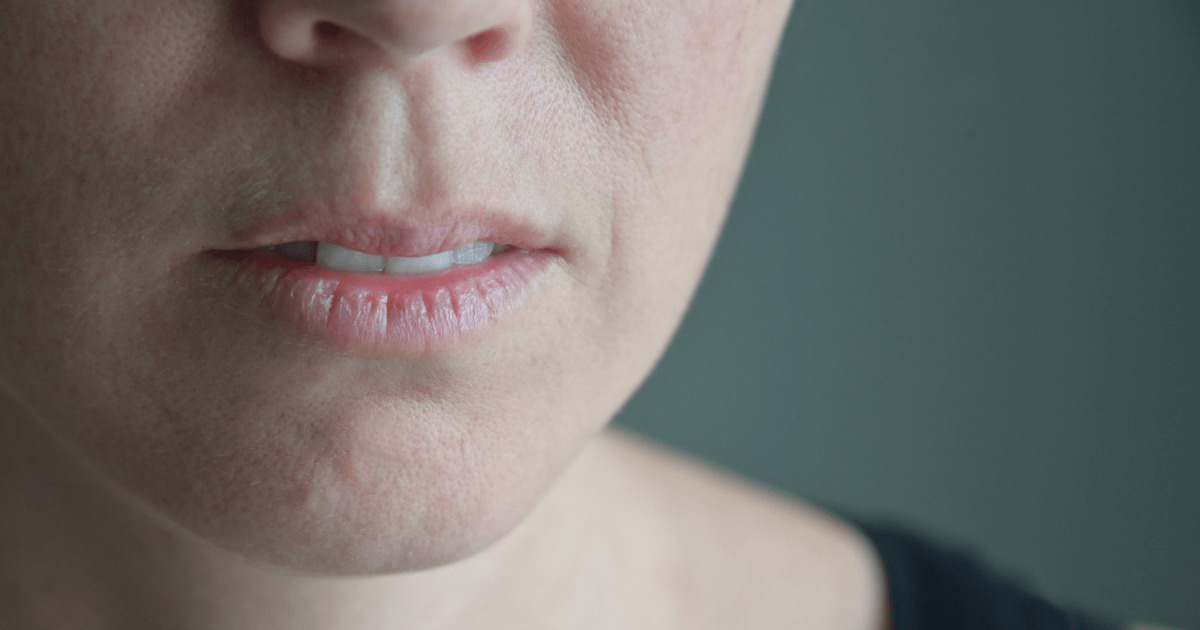CBD
What Drugs Should Not Be Taken With CBD?
CBD (cannabidiol) has gained significant popularity in recent years for its potential health benefits and therapeutic properties. As a non-intoxicating compound derived from the cannabis plant, CBD is used in various forms, such as oils, tinctures, capsules, and creams, to alleviate a wide range of conditions, including anxiety, pain, and inflammation. While many people have found relief with CBD, it is crucial to be aware of potential interactions with other medications.
This article explores the importance of understanding CBD’s interactions with pharmaceutical drugs and highlights some substances that should not be taken with CBD to ensure the safe and effective use of this natural remedy. Whether you are a CBD enthusiast or someone considering its use, being informed about potential drug interactions is essential to promote your well-being and avoid adverse effects.
First Off, What Exactly is CBD?
CBD, short for cannabidiol, is one of the many active compounds found in the cannabis plant. It is a naturally occurring substance that belongs to a group of chemical compounds known as cannabinoids. Unlike another well-known cannabinoid, THC (tetrahydrocannabinol), CBD does not have psychoactive properties, meaning it does not cause a “high” or altered state of mind when consumed.
CBD is typically extracted from hemp plants, a variety of cannabis that contains low levels of THC. This allows CBD products to be legally produced and sold in many parts of the world where marijuana, with higher THC content, remains restricted.
The popularity of CBD has soared due to its potential therapeutic effects and reported health benefits. It is believed to interact with the endocannabinoid system in the human body, a complex network of receptors that regulate various physiological processes such as pain sensation, mood, appetite, and immune function. As a result, CBD is often used to manage a variety of conditions, including anxiety, chronic pain, inflammation, seizures associated with certain forms of epilepsy, and more.
It is essential to note that while CBD shows promise for many health conditions, more research is needed to fully understand its potential benefits and long-term effects. Additionally, individuals interested in using CBD should be cautious about the source and quality of the product they choose, as well as potential interactions with other medications they may be taking. Always consult a healthcare professional before incorporating CBD into your wellness routine, especially if you are currently on prescription medications.
How Does Cannabidiol Work?
Cannabidiol (CBD) interacts with the body through the endocannabinoid system (ECS), a complex signaling system present in humans and many animals. The ECS plays a crucial role in regulating various physiological processes and maintaining balance, or homeostasis, within the body.
The ECS consists of three main components:
- Endocannabinoids: These are cannabinoids produced naturally within the body. Two primary endocannabinoids are anandamide and 2-arachidonoylglycerol (2-AG).
- Receptors: There are two main types of receptors in the ECS: CB1 receptors, primarily found in the central nervous system (brain and spinal cord), and CB2 receptors, mainly present in the peripheral nervous system (immune cells and tissues).
- Enzymes: These enzymes are responsible for the synthesis and breakdown of endocannabinoids.
When CBD is consumed, it does not directly bind to CB1 or CB2 receptors like THC does. Instead, CBD influences the ECS in more indirect ways.
The exact mechanisms are not fully understood, but researchers believe that CBD:
- Enhances Endocannabinoid Signaling: CBD may increase the levels of endocannabinoids like anandamide by inhibiting the enzymes responsible for their breakdown. This, in turn, could enhance the overall functioning of the ECS.
- Interacts with Non-Cannabinoid Receptors: CBD interacts with other receptors in the body, such as serotonin receptors (5-HT1A), vanilloid receptors (TRPV1), and others. These interactions can modulate various physiological processes, including mood, pain perception, and inflammation.
- Alters Neurotransmitter Release: CBD has been shown to affect the release and uptake of various neurotransmitters in the brain, potentially contributing to its anxiolytic (anti-anxiety) and analgesic (pain-relieving) effects.
The overall effect of CBD on the ECS and the body’s various systems contributes to its potential therapeutic benefits. However, it’s important to note that CBD’s mechanisms of action are complex and may vary depending on the specific condition being treated.
As research into CBD continues, scientists hope to gain a more comprehensive understanding of its interactions with the ECS and how these interactions can be harnessed for targeted therapeutic purposes. As with any supplement or medication, it is essential to consult a healthcare professional before using CBD, especially if you have underlying health conditions or are taking other medications.
Is CBD Safe?
CBD is generally considered safe for most people when used appropriately and in moderation. It is well-tolerated in the majority of users, and serious side effects are relatively rare. However, like any substance, CBD may cause side effects in some individuals, and its safety can depend on various factors.
Some common side effects of CBD may include:
- Dry mouth: CBD may reduce saliva production, leading to a dry or parched sensation in the mouth.
- Fatigue: In some cases, CBD may cause drowsiness or fatigue, especially when taken in higher doses.
- Changes in appetite: While CBD can sometimes increase appetite, it can also lead to decreased appetite in others.
- Diarrhea: High doses of CBD or poor-quality products may cause gastrointestinal issues like diarrhea.
It is important to note that CBD can interact with certain medications, potentially affecting their efficacy or increasing the risk of side effects. For example, CBD can inhibit the activity of certain liver enzymes responsible for metabolizing many pharmaceutical drugs, leading to higher concentrations of those drugs in the bloodstream. This is why it’s crucial to consult with a healthcare professional before using CBD, especially if you are taking other medications.
Additionally, there is limited information available on the long-term effects of CBD usage, and more research is needed to fully understand its potential risks and benefits over extended periods.
To ensure safety when using CBD:
- Choose High-Quality Products: Purchase CBD products from reputable and transparent companies that provide third-party lab testing results to verify the potency and purity of their products.
- Start with Low Doses: If you are new to CBD, start with a low dose and gradually increase it, observing how your body responds.
- Be Mindful of Drug Interactions: Inform your healthcare provider about any medications you are taking to determine if CBD is safe to use alongside them.
- Monitor Your Body’s Response: Pay attention to how your body reacts to CBD and discontinue use if you experience any adverse effects.
Overall, CBD holds promise as a potential therapeutic agent, but individual responses can vary. As with any supplement or new health regimen, it’s essential to make informed decisions and seek professional advice when needed.
What Drugs Should Not Be Taken With CBD?
CBD can interact with certain medications, potentially affecting their effectiveness or causing adverse effects. When CBD is consumed, it can inhibit certain liver enzymes (CYP450 enzymes), responsible for metabolizing many pharmaceutical drugs. This can lead to increased concentrations of the medications in the bloodstream, which may result in unexpected side effects or reduced drug clearance from the body.
Here are some types of medications that should not be taken with CBD without consulting a healthcare professional:
- Blood Thinners/Anticoagulants: CBD may increase the effects of blood-thinning medications like warfarin, leading to an increased risk of bleeding.
- Antiepileptic Drugs: Combining CBD with antiepileptic medications, such as clobazam, may cause increased sedation and other adverse effects.
- Anti-Anxiety Medications: CBD can have potential anxiolytic effects, and combining it with other anti-anxiety medications like benzodiazepines may lead to excessive sedation.
- Antidepressants: CBD may interact with certain antidepressants, such as SSRIs (selective serotonin reuptake inhibitors), affecting their metabolism and efficacy.
- Antipsychotic Medications: Concurrent use of CBD with antipsychotic drugs may alter their levels in the bloodstream and impact their effectiveness.
- Antihistamines: CBD might enhance the effects of antihistamines, possibly leading to increased drowsiness.
- Immune Suppressants: CBD could potentially interfere with medications that suppress the immune system, such as those used in organ transplant recipients.
- Prostate Medications: CBD might interact with drugs used to treat an enlarged prostate, such as tamsulosin.
- Heart Medications: CBD can interact with medications used for heart conditions, like calcium channel blockers or beta-blockers.
- Steroids: Combining CBD with steroids may alter their metabolism and affect their efficacy.
This list is not exhaustive, and there may be other medications that could interact with CBD. It is crucial to speak with a healthcare professional, such as a doctor or pharmacist, before using CBD if you are currently taking any prescription medications or have underlying health conditions.
They can provide personalized advice, consider potential drug interactions, and help you determine if CBD is a suitable option for you based on your medical history and current medications.
Side Effects of CBD
While CBD oil is generally considered safe for most people, it can cause side effects in some individuals. The side effects of CBD are typically mild and well-tolerated, but it’s essential to be aware of them, especially if you are new to using CBD products or have underlying health conditions.
Some of the common side effects of CBD include:
- Dry Mouth: CBD may reduce saliva production, leading to a dry or cotton-mouth sensation.
- Fatigue and Drowsiness: In some cases, especially when taken in higher doses, CBD can cause feelings of tiredness or drowsiness.
- Changes in Appetite: While CBD can sometimes increase appetite (the “munchies” effect), it can also lead to decreased appetite in others.
- Diarrhea: High doses of CBD or poor-quality products may cause gastrointestinal issues, such as diarrhea.
- Nausea: Some individuals may experience mild nausea when taking CBD.
- Irritability: In a few cases, CBD may lead to feelings of irritability or mood changes.
- Interactions with Medications: As mentioned earlier, CBD can interact with certain medications, affecting their metabolism and potentially causing unwanted side effects.
It’s essential to note that individual responses to CBD can vary, and not everyone will experience these side effects. Additionally, many side effects can be mitigated by adjusting the CBD dosage or changing the method of consumption.
To minimize the risk of experiencing side effects:
- Start with a Low Dosage: If you are new to CBD, begin with a low dose and gradually increase it as needed while monitoring your body’s response.
- Choose High-Quality Products: Purchase CBD from reputable and transparent companies that provide third-party lab testing to ensure product quality and purity.
- Consult with a Healthcare Professional: If you have any underlying health conditions or are taking other medications, it’s important to consult with a healthcare professional before using CBD.
- Monitor Your Body’s Response: Pay attention to how your body reacts to CBD, and discontinue use if you experience any adverse effects.
If you experience severe or persistent side effects after using CBD, it’s crucial to seek medical attention promptly.
Remember that CBD’s potential benefits can vary depending on the individual and the specific condition being addressed. As with any supplement or medication, making informed decisions and seeking professional advice can contribute to a safer and more effective CBD experience.
What to Do if You Have a Negative Reaction to CBD
If you have a negative reaction to CBD, it’s essential to take appropriate steps to address the situation and ensure your well-being.
Here’s what you can do if you experience adverse effects after using CBD:
- Stop Using CBD: If you suspect that CBD is causing a negative reaction, immediately discontinue its use. Cease using any CBD products you have been using, including oils, tinctures, capsules, gummies, or topicals.
- Seek Medical Attention: If your symptoms are severe or concerning, seek medical attention promptly. Contact your healthcare provider or visit the nearest medical facility to discuss your symptoms and get professional advice.
- Identify the Specific CBD Product: Take note of the brand, type, and dosage of the CBD product you used. This information can be valuable if you need to discuss the reaction with a healthcare professional or report it to the manufacturer.
- Report Adverse Reactions: If you believe your negative reaction to CBD is related to a specific product, consider reporting it to the manufacturer or the relevant regulatory authorities. Many countries have systems in place to report adverse events associated with dietary supplements or medications.
- Review Other Factors: Consider other potential factors that may have contributed to the negative reaction. For example, if you used a new product, check its ingredients for any allergens or sensitizing agents that could be responsible for the adverse effects.
- Consult with a Healthcare Professional: If the negative reaction persists or if you have concerns about using CBD in the future, consult with a healthcare professional, such as a doctor or pharmacist. They can assess your situation, review your medical history, and provide personalized guidance regarding CBD use or alternative treatments.
- Adjust Dosage or Method of Consumption: If you and your healthcare professional decide that CBD might be beneficial for you, consider adjusting the dosage or trying a different method of consumption. Sometimes, adverse effects can be minimized by finding the right dosage or using a different delivery method, such as switching from oral consumption to topical application.
Remember that individual responses to CBD can vary, and what may cause a negative reaction in one person might not affect others in the same way. As with any supplement or medication, it’s essential to make informed decisions and seek professional advice when needed to ensure your safety and well-being.
Safety Tips For Taking CBD
Taking CBD can be safe when done properly.
Here are some safety tips to consider when using CBD:
- Consult with a Healthcare Professional: Before incorporating CBD into your wellness routine, consult with a healthcare professional, especially if you have any underlying health conditions or are taking other medications. They can provide personalized advice and help you determine if CBD is suitable for you.
- Choose High-Quality Products: Purchase CBD products from reputable and transparent companies that offer lab-tested CBD products. Look for products that provide third-party lab testing results to verify their potency and purity.
- Start with a Low Dosage: If you are new to CBD, start with a low dosage and gradually increase it as needed. This allows you to assess how your body responds to CBD and minimizes the risk of adverse effects.
- Read and Follow Instructions: Follow the manufacturer’s instructions on how to use the CBD product. Pay attention to the recommended dosage and method of consumption.
- Be Mindful of Drug Interactions: If you are taking other medications, be aware of potential drug interactions with CBD. Some medications may require dosage adjustments or avoidance of CBD altogether. Always consult with your healthcare provider if you are uncertain about possible interactions.
- Observe Your Body’s Response: Pay attention to how your body reacts to CBD. If you experience any negative side effects or allergic reactions, stop using the product and seek medical advice if necessary.
- Avoid Driving or Operating Heavy Machinery: CBD may cause drowsiness or fatigue, especially in higher doses. Avoid driving or performing activities that require alertness until you know how CBD affects you.
- Store CBD Products Properly: Keep CBD products out of reach of children and pets. Store them in a cool, dry place, away from direct sunlight.
- Stay Informed: Stay updated with the latest information and research on CBD. As the field of CBD research is continually evolving, new findings may impact its safety and usage guidelines.
- Consider Your Personal Goals: Reflect on your reasons for using CBD and set realistic expectations. CBD may offer various potential benefits, but individual responses can vary.
- Avoid Unsubstantiated Claims: Be cautious of products that make extravagant or unsupported health claims. While CBD shows promise for certain conditions, it is not a miracle cure, and more research is needed to fully understand its effects.
Following these safety tips can help ensure a positive and safe experience with CBD. As with any supplement or new health regimen, it’s essential to be informed, cautious, and seek professional advice when needed.
You Can Buy CBD Products Online in Canada at Get Kush
In the vast expanse of Canada, a land of breathtaking landscapes and diverse cultures, a new era of wellness had dawned. As people sought natural remedies for their ailments, the soothing embrace of CBD products became a beacon of hope. From the bustling cities to the tranquil countryside, the news spread like wildfire.
With the click of a button, Canadians from coast to coast could access a curated selection of high-quality CBD oils, tinctures, capsules, and more.
At Get Kush, they believed in the transformative power of CBD, sourced from the finest hemp plants nurtured by skilled hands. Find us featured on sites such as Atlantic Cannabis. As the nation embraced this newfound avenue of well-being, a sense of unity and harmony permeated the air, for in CBD, they found a common thread that bound them together on their journey to healthier, happier lives.
References
Grinspoon, P. (2020, April 15). Cannabidiol (CBD) — what we know and what we don’t. Harvard Health. Available at: https://www.health.harvard.edu/blog/cannabidiol-cbd-what-we-know-and-what-we-dont-2018082414476
Atlantic Cannabis (2023, August 1). Find Reliable Marijuana Dispensaries and Weed Delivery Services in Nova Scotia, New Brunswick, Newfoundland, and PEI. Available at: https://atlanticcannabis.net/
Katsiaryna Bykov (2021, January 11), CBD and other medications: Proceed with caution. Harvard Health Publishing. Harvard Medical School. Available at: https://www.health.harvard.edu/blog/cbd-and-other-medications-proceed-with-caution-2021011121743
Keoni CBD. (2023, August 1). Buy Keoni CBD Products Online. Available at: https://www.keonicbd.com/



